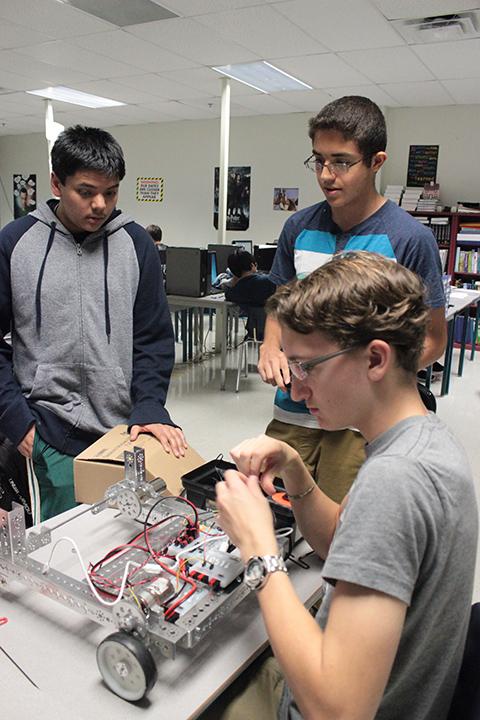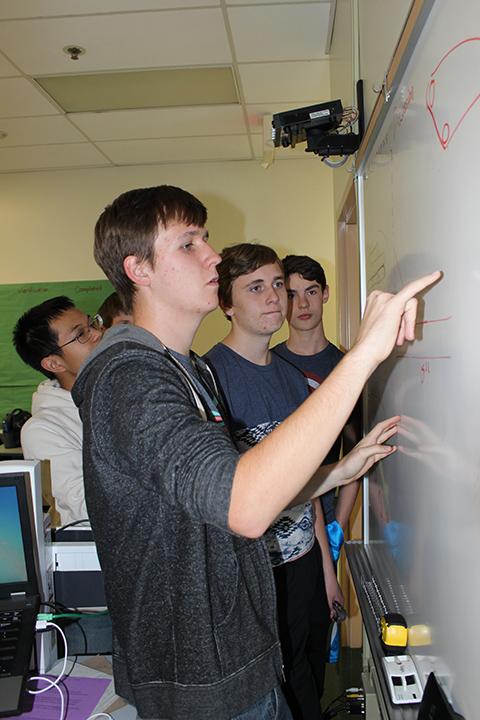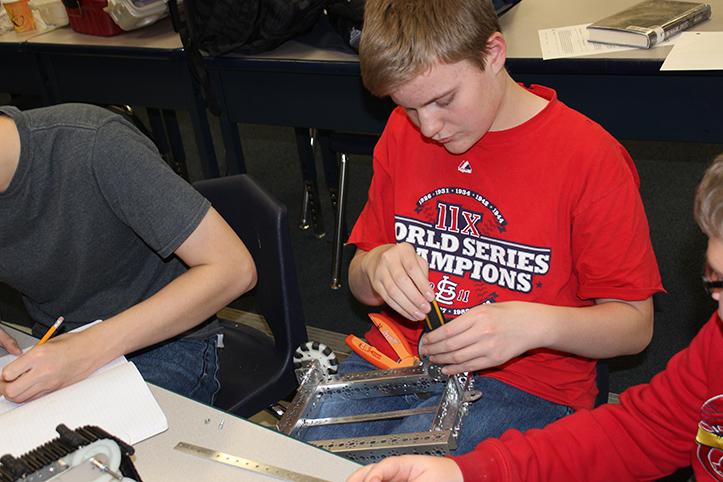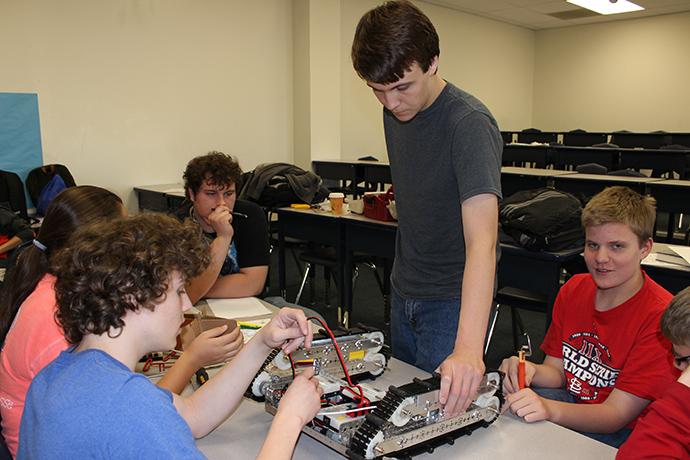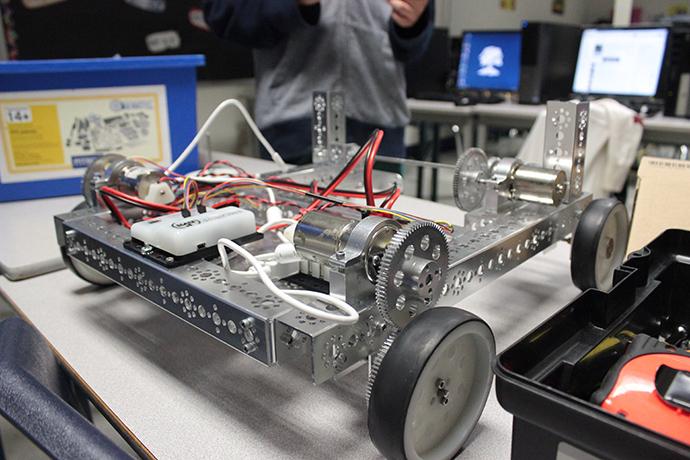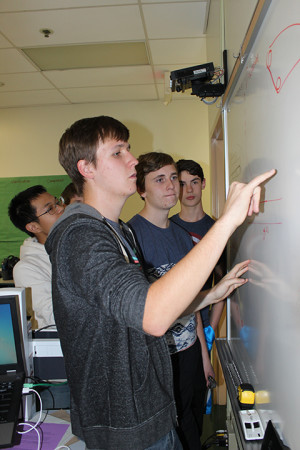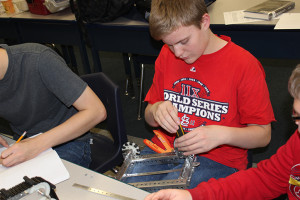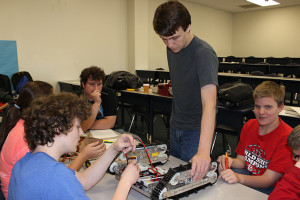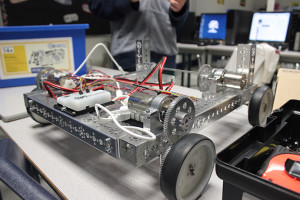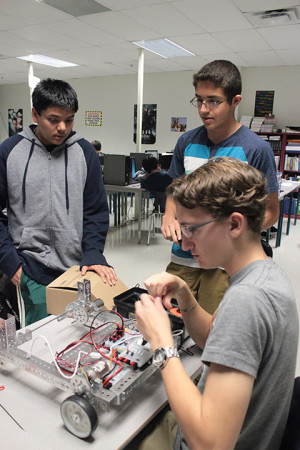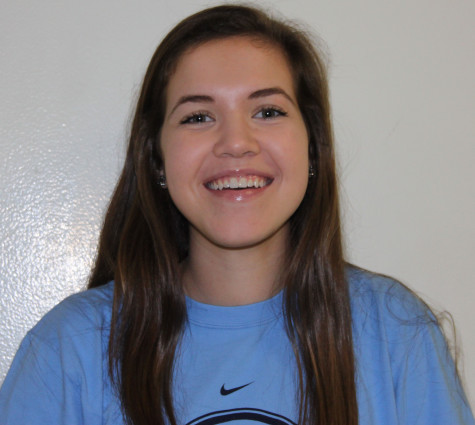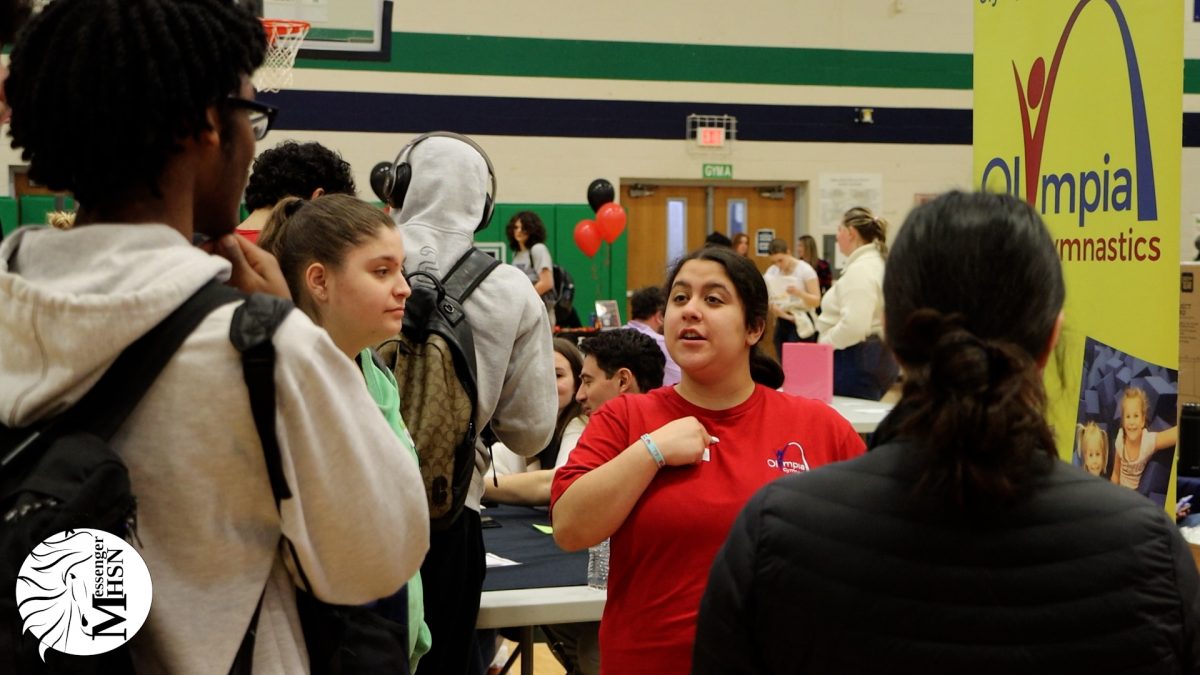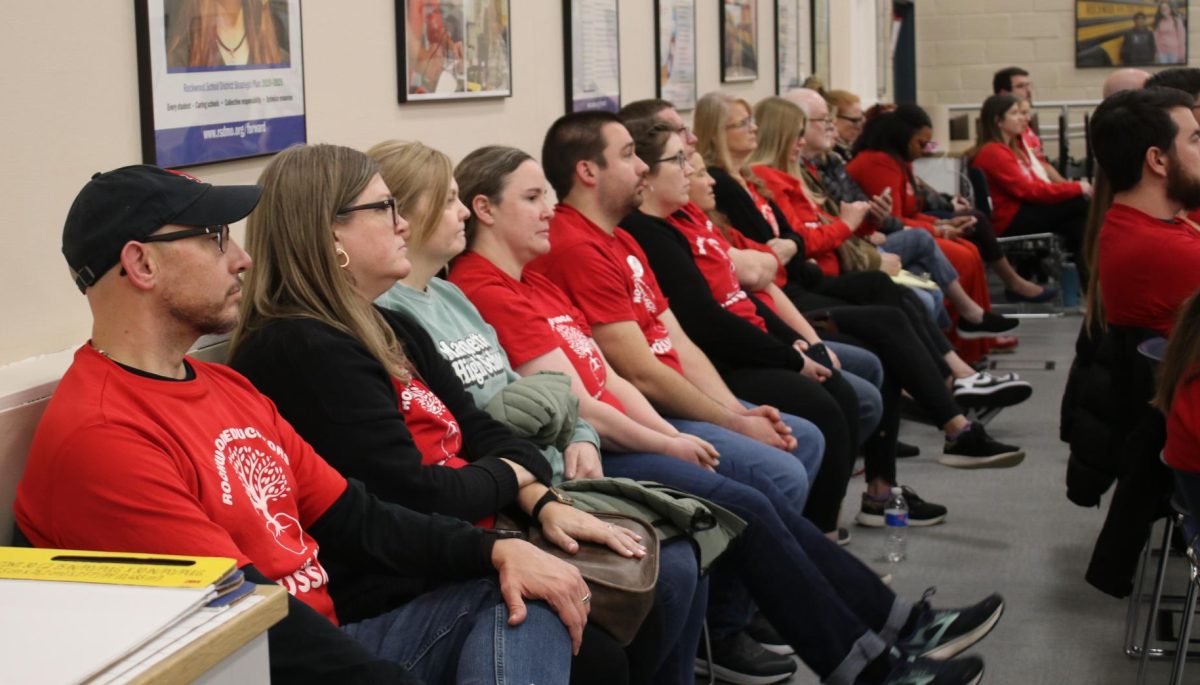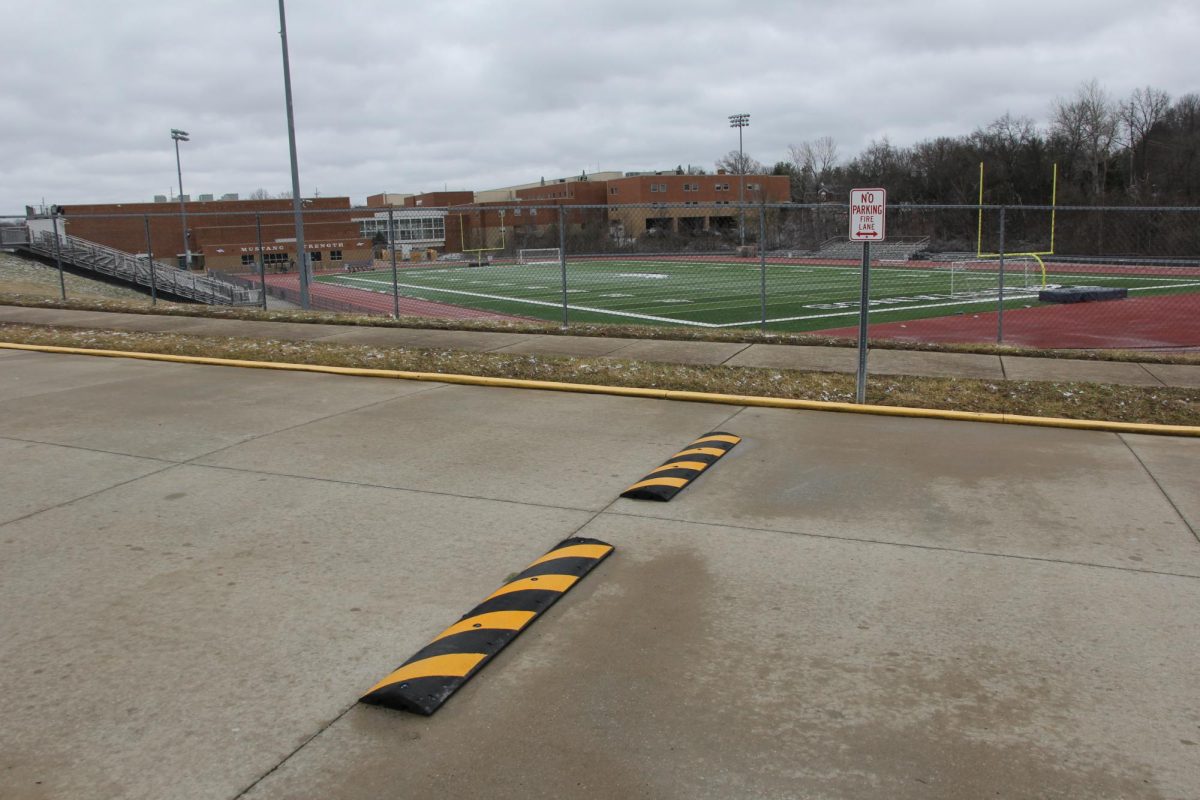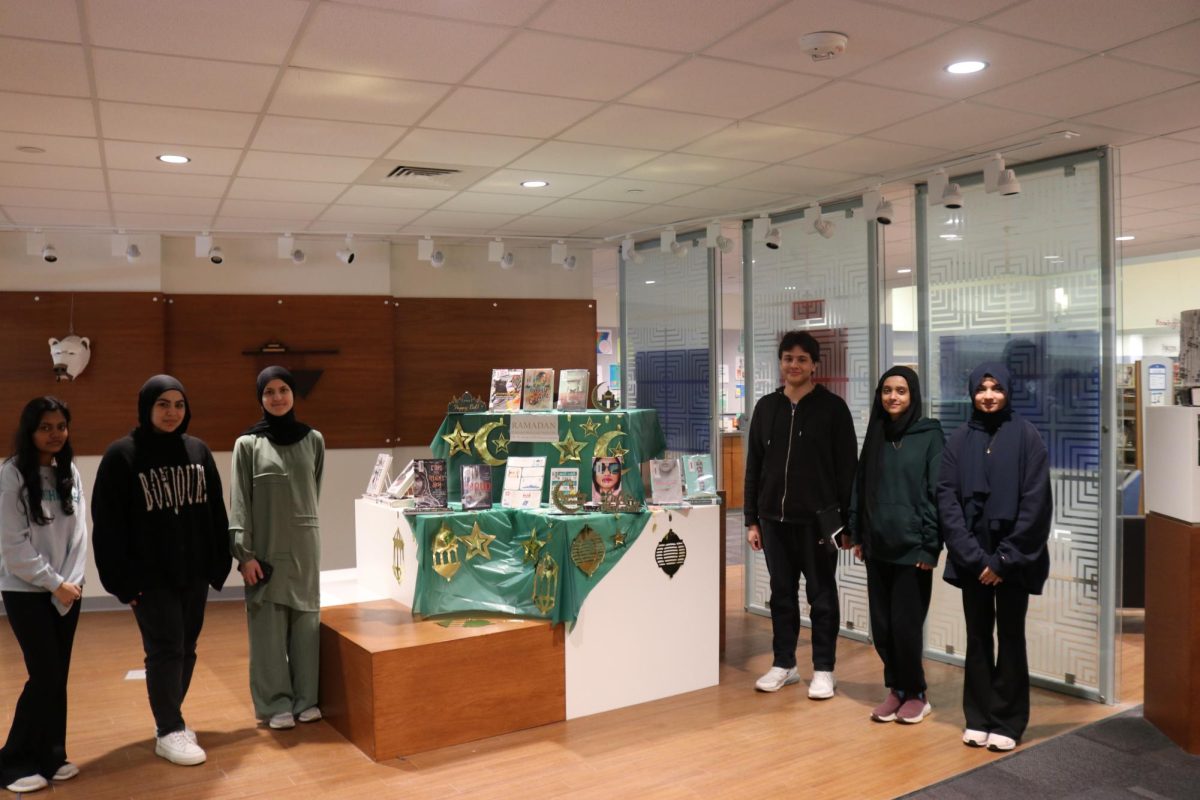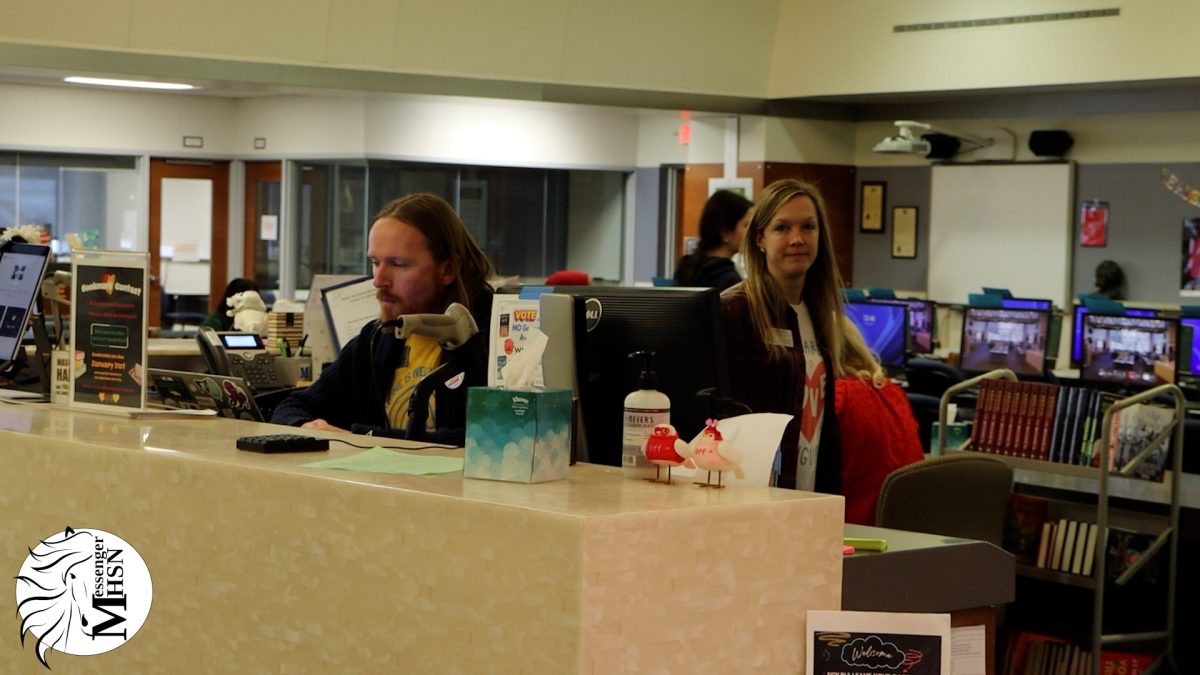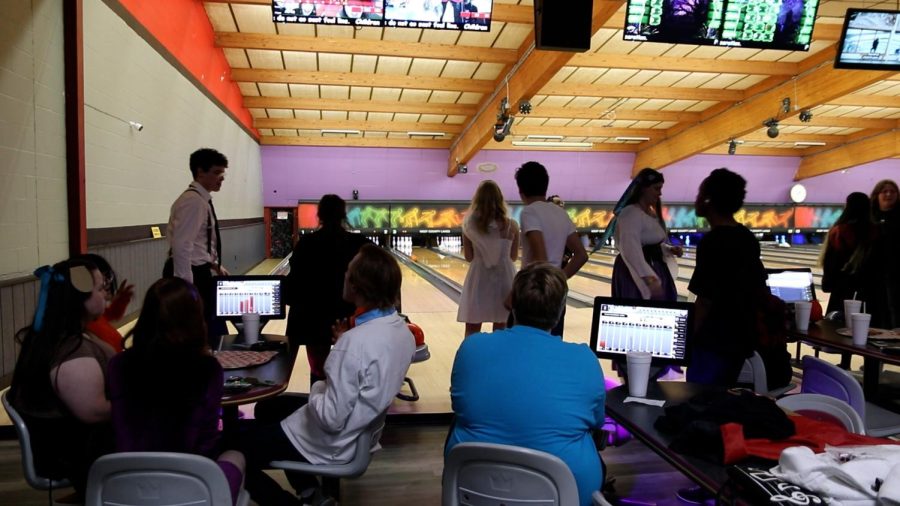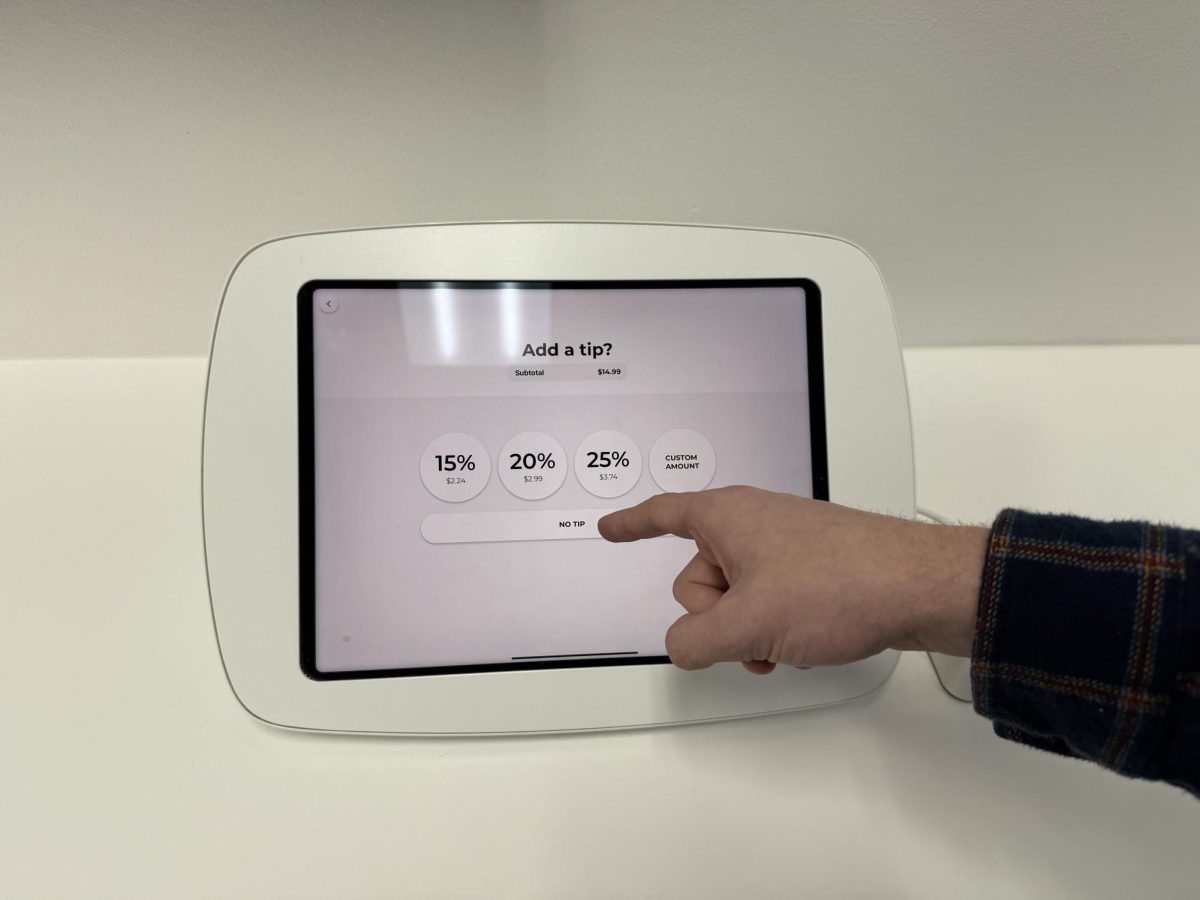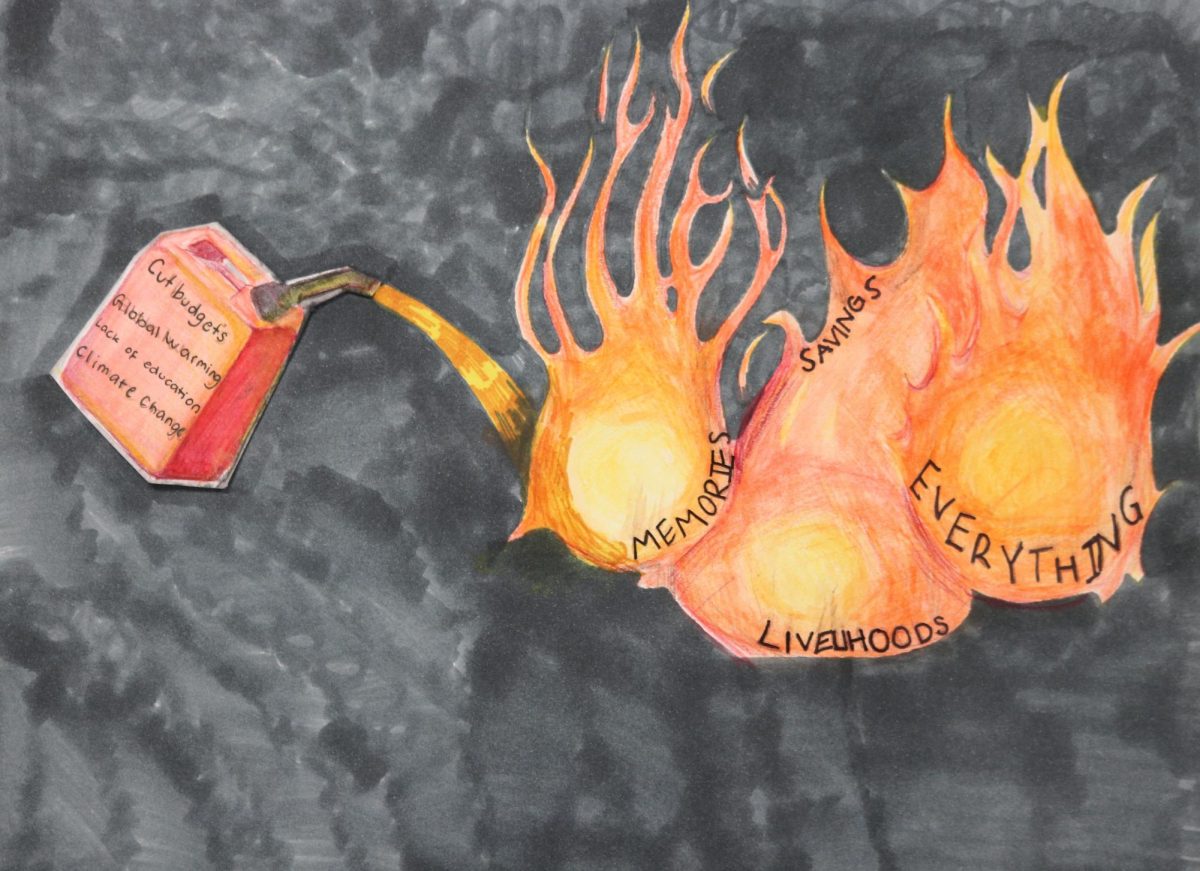MHS Robotics faces changes
November 8, 2015
Athletes of common sports like basketball and baseball play the same game every year with fairly consistent rules and objectives. With robotics, though, every year there’s a different challenge and a different competition.
Beth Dierker, head MHS Robotics sponsor, said the challenge is more complicated and extensive this year than previous years. The robot must be able to complete tasks such as placing an object in a goal, climbing a hill and hanging on a bar.
In addition to adapting to the challenge’s increased difficulty, this year, veteran members adjusted to a 20 member increase by creating a third team, the Luxons, within the club.
“There’s more opportunity for people to participate,” Dierker said. “The only other option was to cut a bunch of people, and we didn’t want to do that.”
Last year, the teams, the Baryons and the Gluons, occupied one room for meetings: the Flex Room, were sponsored by one teacher: Beth Dierker and were mentored by two mentors. This year, however, due to the added team, the club has had to expand to two rooms, two sponsors with the addition of Holly Lehmann and three mentors with the addition of MHS graduate Dan Spohr.
For senior Kevin Fu, captain of the Gluons team, the increase in members has posed some challenges, especially in meetings.
“It’s a lot more hard to coordinate because you have to get the message around to a lot of different people,” Fu said.
All three captains, Amar Mohanty, Vishal Shah, and Kevin Fu, met at the start of the season to distribute each member into the three teams, while trying to obtain a fairly even spread of experience on all three teams.
Fu said while spreading out experienced members among separate teams may hinder the overall club in the short run, it will be beneficial in the long run since robotics still operates somewhat as one collaborative club.
“I don’t think it should be too big of an issue because in robotics, everyone helps each other,” Fu said. “If any team has an issue, they can always go to one of the other teams to get assistance.”
Fu said the environment isn’t completely collaborative, though. Members frequently use the term “gracious professionalism” to describe the collaborative yet competitive character of the club.
Other changes this year are more team-specific, Fu said. He assigned more people to building the robot and less people to marketing than he did last year. Building roles consist of builders, programmers, electricians and documentors, whereas marketing jobs handle sponsorships, t-shirt design, website management and community outreach.
Fu said most teams give members with seniority building roles and put mostly lower classmen on marketing, but he found this did not work well, so this year he assigned members to whichever role they prefer.
“People in general will be more motivated,” Fu said. “And i have seen better results so far.”
Fu said the Gluons have a good shot at making it into semi regionals this year, even though they are currently still in the design process and haven’t made any significant accomplishments.
Similarly, senior Vishal Shah, captain of the Luxons team, said his team is still in the design process due to difficulties with the design.
Despite this year being the Luxons’ first season, Shah said his marketing members have been fairly successful, and his building members are overcoming design challenges by collaborating with the entire team.
“We’re getting opinions from our whole team,” Shah said. “”We always meet to design things and run our designs by everyone.”
Last weekend, all of the Rockwood robotics teams met at a location with a test field to test their robots in a scrimmage and learn from other designs.
“We got new plans,” Shah said. “We got to test our design, we figured out that it wasn’t the most effective.”
Amar Mohanty, senior, is captain of a pre-existing robotics team, the Baryons. Last year, the Baryons qualified for the Super Regionals competition, marking them as the most successful Rockwood team in history. Mohanty said the mistakes made last year have made it easier to overcome new challenges this year. They saw some of this success at the scrimmage.
“Our robots actually performed the best, it was able to perform most of the tasks better than everyone else,” Mohanty said. “None of the other robots were able to do the task.”
In addition to the redistribution of several team members due to the creation of the Luxons, the Baryons, Gluons, and Luxons also face new changes in software. The robotics teams have switched out their old Lego Mindstorm sets for an Android system that operates from cell phones. Mohanty said the new systems were most likely chosen because the sensors and electronics associated with the cell phones were faster processors.
“It’s also more applicable to real life,” Mohanty said. “We’re coding and building application, not just using random robot language that no one will ever use.”



